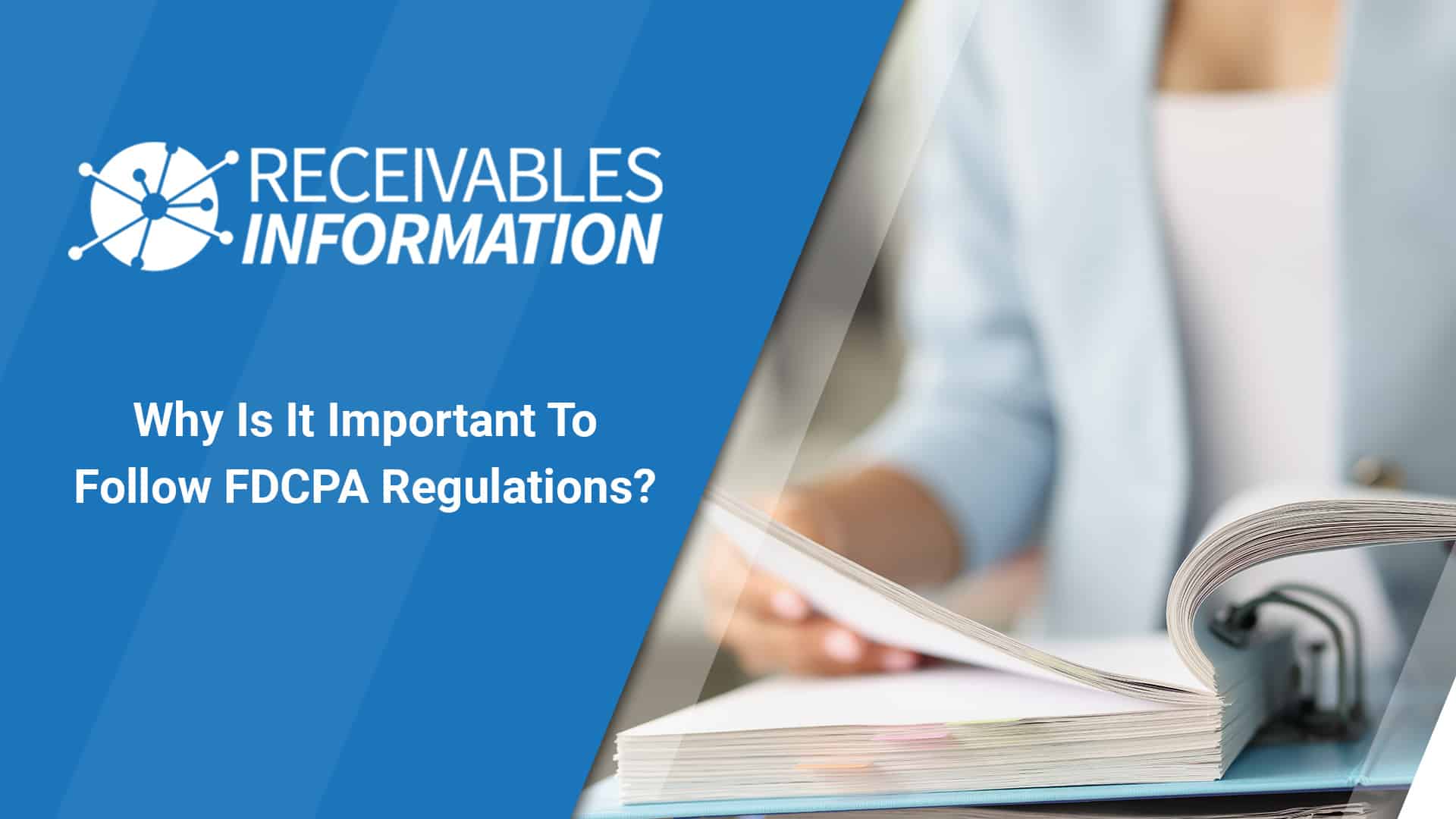
Why Is It Important To Follow FDCPA Regulations?
The Fair Debt Collections Practices Act (FDCPA) is the primary governing legislation pertaining to the Accounts Receivable Management (ARM) industry. The FDCPA became law in 1978 and has been a focal point of collections ever since. In late 2021, the Consumer Financial Protection Bureau (CFPB) introduced their “final rule” on the FDCPA—or Regulation F as the bureau calls it—which sent shockwaves through the industry as agencies look to remain compliant with the most recent changes.
But why do collection agencies comply? What ramifications are there to skirt around FDCPA regulations?
FDCPA Punishments
Compliance mainly stems from the built-in penalties and punishments should an FDCPA violation occur. As a rule, violators of the FDCPA are liable for:
- Any ‘actual’ damages suffered as a result of their failure to comply. This typically manifests itself as physical or emotional damages granted by the court in an FDCPA lawsuit.
- FDCPA violations can result in fines up to $1,000 for each plaintiff and an award of $500,000 or 1% of the collector’s net worth (whichever is less) to be divided up amongst the plaintiffs.
- Reimbursement of any legal fees incurred during the lawsuit
CFPB
While the Federal Trade Commission (FTC) acts as the primary enforcement agency of the FDCPA, the CFPB has stepped in as the most notorious regulatory arm since its founding in 2011. As part of the Dodd–Frank Wall Street Reform and Consumer Protection Act, the CFPB monitors banks, credit unions, securities firms, payday lenders, mortgage-servicing operations, foreclosure relief services, debt collectors, and other financial companies operating in the United States to protect consumers within the financial industry.
The CFPB acts as both a monitoring and enforcement agency against FDCPA violations. The CFPB has worked with plaintiffs to receive $12.9 billion in consumer relief and issued $1.6 billion in penalties. While those figures cover all of their enforcement actions, in 2020 alone the CFPB issued $15.2 in consumer redress and $80,000 in civil penalties for just FDCPA enforcement.
To learn more about the CFPB and how it works to protect consumers, read our Receivables 101: “What is the CFPB and How Does it Work?”
Increased Legal Action
The Pew Charitable Trusts—a global nongovernmental organization that seeks to improve public policy—conducted an analysis of state, local, and national court data and found that from 1993 to 2013, the number of debt collection suits rose from 1.7 million to 4 million and on civil dockets, collection suits went from 1 in and every 9 cases to 1 in every 4. For some state data, Pew found that debt collection suits outpaced every other form of civil lawsuits.
This rising trend in debt collection litigation both by collectors and consumers indicates a rising need to remain compliant with the FDCPA. For collection agencies looking toward account resolution, filing a lawsuit while remaining non-compliant has led to a host of issues including counter suits, dismissals, and ultimately government fines.
Compliance Standards
Perhaps the most abstract reason organizations and individual collectors look to be compliant is because of their industry colleagues. The ARM industry, while competitive, is also close-knit. Organizations like the Receivables Management Association International and ACA International have rigorous membership standards. RMAI’s Certified Receivables Business certification must “comply with uniform and rigorous industry standards of best practices and pass an RMAI conducted background check.” These industry-wide standards include FDCPA compliance.
Whether it’s monetary penalties, an increased likelihood of legal action, or a desire to remain connected with the industry, remaining FDCPA compliant is one of the most important aspects of the ARM industry. Maintaining an agency’s reputation extends beyond a friendly face and is directly impacted by compliance with the rules and regulations that govern the industry.
Learn More
To learn more about the ARM industry as a whole, follow Receivables Info on Facebook, LinkedIn, and YouTube. Be sure to also check out our Money Chat series for more ways to grow in financial education while exploring the receivables landscape.
About Receivables Info
The Receivables Info team is led by receivables management industry veterans who wanted to create a website for the industry, by the industry. Their goal is to provide a voice to high-quality debt buyers, collection agencies, law firms, and industry veterans to share information about their businesses and their place within the marketplace and the community. The website provides relevant news alerts, articles, videos, and other receivables-related information to industry partners and colleagues around the industry and the globe. Receivables Info is also home to financial education resources for consumers through series like Money Chat.
The information contained in this article is meant to serve as general guidance for entry-level to mid-level ARM industry professionals and is not meant to serve as comprehensive business, legal, or financial advice.









